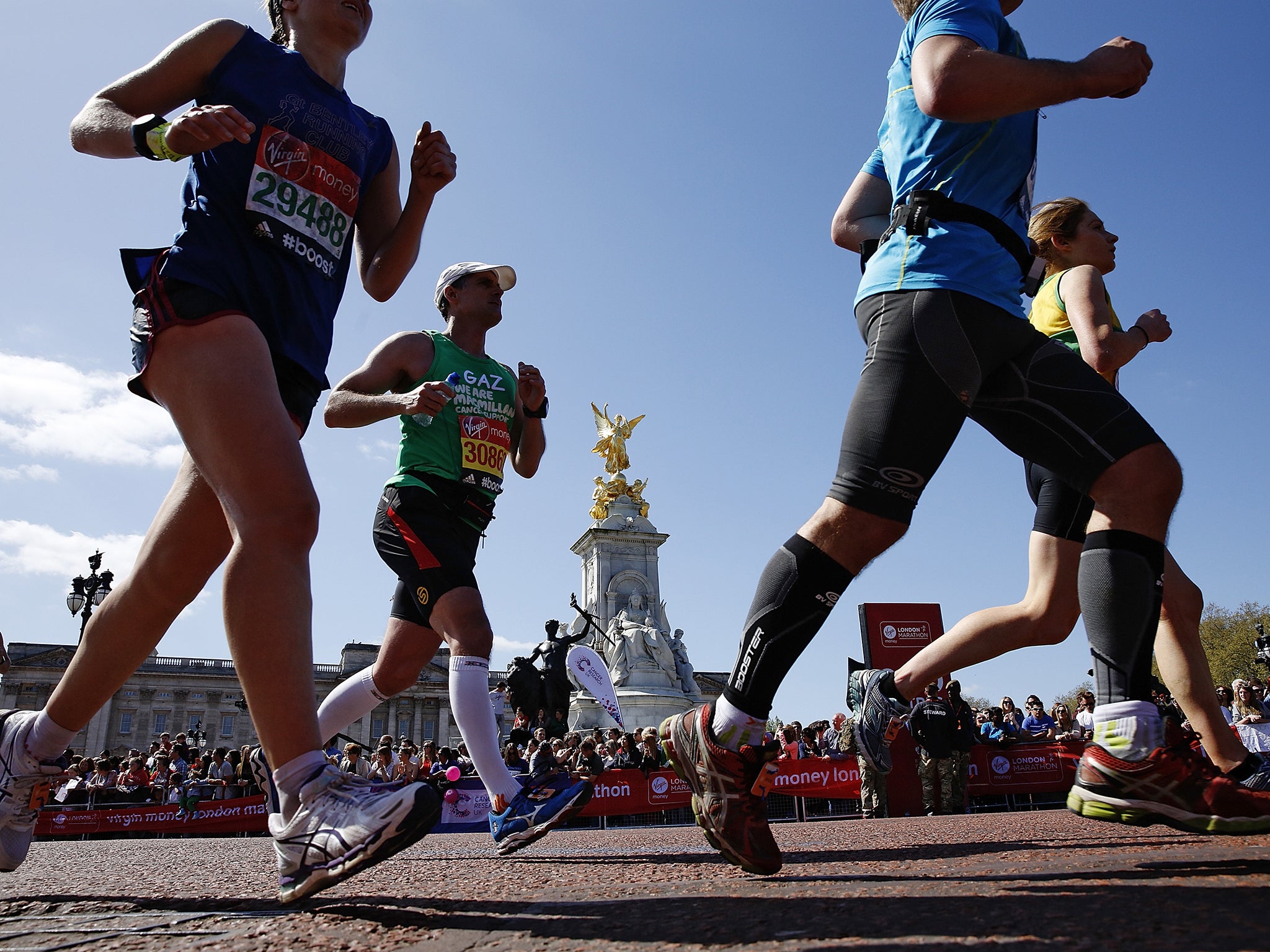Best running books: Whether you like a jog, a scamper, or a marathon...
... there’s a book out there for all types of runner, says Alexandra Heminsley

Today sees both the most prestigious city marathon in the world and the biggest charity fundraiser of its type take place on the streets of London: the Virgin London Marathon. The popularity of this extraordinary event, which welcomes both the super-elite and have-a-go heroes, is reflected in the current variety of titles available to runners – whatever their level or temperament.
Everyone, from beginners to would-be elites, could do worse than to start with Build Your Running Body (Souvenir Press, £15). It covers almost everything, from kit to training and diet to a potted history of running itself, and it does it all with admirable detail but little “lifestyle” faff. It’s markedly American (frequent references to your “regimen” are scattered throughout), but the tone is that of a kindly, knowledgeable teacher rather than an adrenalin-pumped guru. There are geeky charts explaining PH levels and muscle fibres rather than Instagram-type visuals, and this feels reassuring. Think of it as the road atlas in the car boot of your running journey – you’ll never read it cover to cover but you’ll always be glad it’s there.
Christopher McDougall on the other hand has built a career as a running guru on the back of his hugely readable first book Born to Run. It told the story of the Tarahumara Mexican Indians and their barefoot ways, and made McDougall a huge player in the barefoot running industry. His follow-up, Natural Born Runners (Profile £16.99), combines a similarly gripping narrative with his unique take on sports science. A retelling of Patrick Leigh Fermor’s exploits in Crete forms the narrative backbone, and McDougall leaps from here to some pretty bold statements on metabolism, muscles and male adventures. His conclusions are (infuriatingly) rarely objective but he tells an undeniably ripping yarn. One for sofa surfers and adventurers alike.
Adharanand Finn also combines great storytelling with a similar sort of immersive research. The self-explanatory Running with the Kenyans did very well a couple of years ago and now he has moved on to the Japanese to learn what he can from their approach to running. The Way of the Runner (Faber £14.99) reveals Japan to be a country alarmingly but charmingly running-obsessed. Finn, a lovely, anxious narrator as he approaches his 40th birthday worried about his race times, discovers how utterly ingrained in the Japanese psyche running is – as a mainstay of both community and psychology. The book is less gung-ho than Natural Born Runners but probably more useful as a fresh perspective on your own running.
The astonishing Lizzy Hawker’s story is out this week too, providing a much-needed female slant on the sport. Runner: A Short Story About a Long Run (Aurum, £12.99) chronicles a range of ball-busting achievements, from winning the Ultra-Train du Mont Blanc five times (it’s as extreme as it sounds) to being named National Geographic Adventurer of the Year. But where this could have been an insufferable list of extremes endured, Hawker’s generosity of spirit and faith in what running can do for one’s soul makes it a rather moving tribute to what all of us might be capable of.
Lucy Fry’s Run Ride Sink or Swim (Faber, £12.99) is another charming female read about taking on way more than you ever dreamed possible. It’s not mere running here, but the cycling and swimming that make up a triathlon as well. This is an altogether chattier affair, with anecdotes about training and practicalities as well as friendships and embarrassments. It’s a fun, approachable place to start if you’re thinking of moving off the pavement towards other disciplines, and a wonderful reminder that achievement need not mean going the furthest or fastest, but merely moving beyond your own expectations.
Girl Runner, by Carrie Snyder (Two Roads, £14.99) is the only novel of the lot. Aganetha Smart is a 104-year-old ex-Olympic athlete, now resident in a nursing home. When she least expects it, two strangers come to take her out – to the farm where she grew up as a running prodigy. All fine so far, except that her childhood was in 1920s Canada when girls were not encouraged to train, let alone compete or win, so the memories stirred up are not entirely happy ones.
Part mystery, part historical fiction, it’s a gentle read, and one that almost certainly wouldn’t suit a fan of testosterone-fuelled running adventures. But it’s a valuable reminder of how hard women have had to fight to be taken seriously as runners. And, as with both Lucy Fry and Lizzy Hawker, it’s a joy to read about a woman finding pleasure in her body that isn’t sex or diet-based. Long may running provide this escape for all of us, men and women alike.
‘Running Like a Girl’, by Alexandra Heminsley, is published by Hutchinson
Join our commenting forum
Join thought-provoking conversations, follow other Independent readers and see their replies
Comments